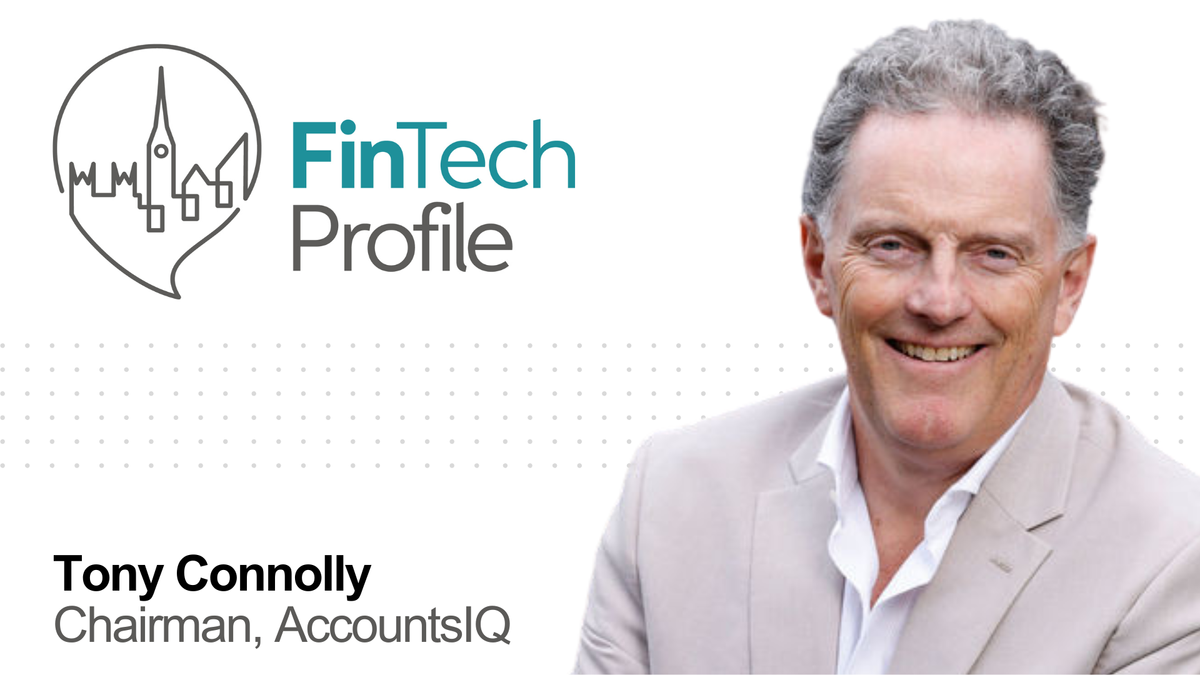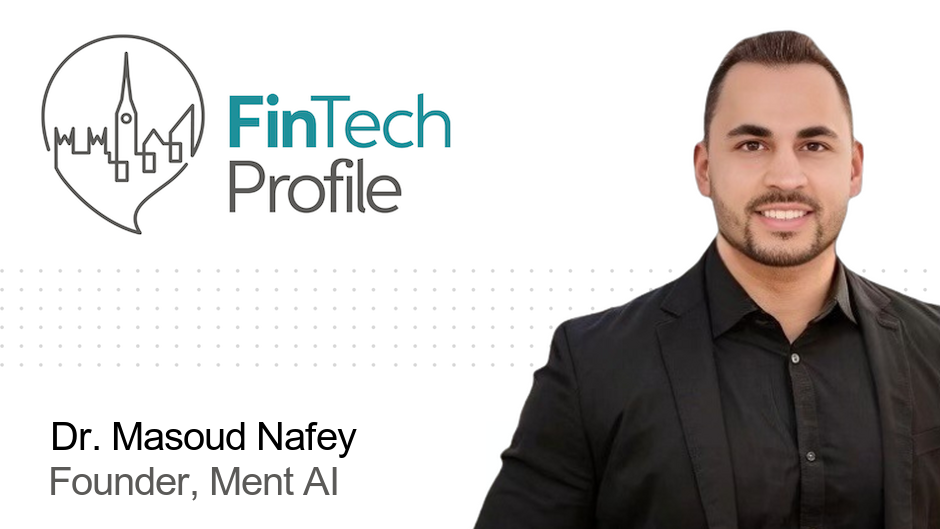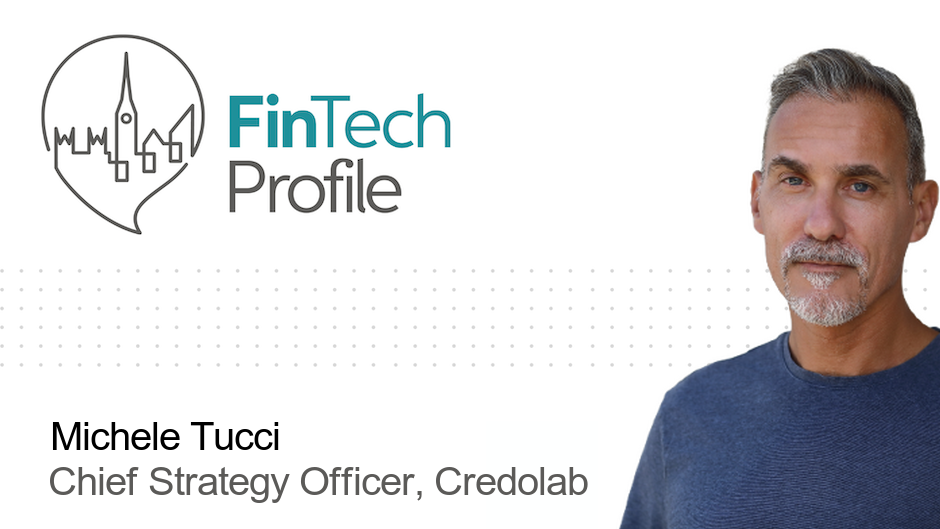Tony Connolly, Chairman & Founder, AccountsIQ

Today we're meeting Tony Connolly, the Chairman and Founder of AccountsIQ, the scalable cloud-based accounting software provider.
Over to you Tony. My questions are in bold.
Who are you and what's your background?
I’m Tony, Chairman and founder of AccountsIQ. I’ve been designing and implementing business systems for more than 30 years. After my business degree at UCD, I qualified as a Chartered Accountant with KPMG, but my interest in IT pulled me back into education to study Systems Analysis & Design at Trinity College. I was a manager in KPMG’s consulting division and left to set up a consultancy firm advising larger organisations in the UK and Ireland on the design, selection and implementation of their business and financial management systems (FMS).
In 2000, I merged that practice into a mid-sized accounting and business consulting firm (now part of Grant Thornton) where I became partner. I sat on the IT Advisory Committee of the Institute of Chartered Accountants and continued to advise early-stage tech entrepreneurs in non-exec roles. Having worked on several early projects that utilised the “web” and seeing the impact it could have on business systems, I took the plunge in 2005 and started a company to build a web-based FMS.
I didn’t anticipate it taking as long as it did to get the business off the ground! In particular, when the product was ready to launch in 2008, I didn’t appreciate how hard the global recession would hit us, making selling a brand-new concept particularly challenging! However, our belief and passion enabled us to survive the recession and we learnt a lot so I have no regrets.
Today, our completely cloud-native platform is tailored to meet the specific needs of growing modern enterprises, saving finance teams up to a week every month through automation, built-in consolidation and Business Intelligence, seamless integrations and of course powerful reporting.
What is your job title and what are your general responsibilities?
My job title at AccountsIQ is Founder & Chairman. My responsibilities include leading a strong senior leadership team who together are responsible for managing the business, as well as driving its strategic direction and guiding the overall architectural direction of the product.
Can you give us an overview of your business?
At AccountsIQ, we strive to deliver a financial management solution to redefine how finance teams manage their businesses via the cloud, to enable them to achieve sustained growth and development. We partner with our clients to deliver a top-tier Software-as-a-Service solution rather than simply selling the software. Our award-winning scalable cloud accounting platform is available worldwide 24-7 and accessed by thousands of businesses across over 80 countries.
In a rapidly growing accounting software market – expected to hit $38 billion by 2032 – mid-sized businesses want immediate financial visibility and control across all their business entities, with functionality that goes beyond basic accounting software, without the complexity and cost of enterprise ERPs. AccountsIQ fulfils this need, helping businesses that have outgrown their entry-level or on-premise software to continue growing, automate their processes and strengthen their reporting.
Our platform transforms previously manual processes of data consolidation and reporting to provide real-time analytics that redefines how finance teams operate. This process automation – such as auto bank reconciliation, OCR scanning of invoices, intercompany transactions and revenue recognition – eliminates days of manual work each month.
In particular, automated multi-entity consolidation is a long-held dream of group accountants burdened by error-prone spreadsheets. Many fast-growing companies, who expand into subsidiaries and multiple entities outgrow Sage, QuickBooks and Xero and switch to our product as a single platform for accounting, consolidation and group-wide reporting capabilities. This enables businesses to perform multi-level, multi-currency consolidations in one click giving one group-wide version of the truth.
Tell us how you are funded?
We have raised multiple rounds of funding as the company grew and developed from initial bootstrapping and angels to institutional investors. I recently led a Series C investment round, raising €60M from Axiom Equity. The focus of the fundraise is to continue developing our product to shape the finance function of the future.
What’s the origin story? Why did you start the company? To solve what problems?
My consulting practice had worked on a range of large IT projects where the infrastructure costs significantly outweighed the software costs and subsequently successfully used “the web” to replace a very expensive leased line network.
When I looked at how accounting practices were delivering outsourced accounting services, involving clients sending in boxes of invoices and bank statements at month end, I thought “the web” could revolutionise how this is done and allow accountants to collaborate with their clients without physical documents going back and forth. As I couldn’t find any solution I decided to set up what is now AccountsIQ as an accounting solution delivered over the Internet. I applied my hybrid background in both accounting and IT to design and build a cloud-based financial management system (FMS) that could manage multi-entity businesses on a single platform.
Together with our CTO Gavin McGahey, I started to assemble a team to develop the product in 2005 and launched the product in 2008 just as the financial crisis hit. Now we have over 5,000 businesses on the platform and the product has received industry recognition, including ranking in the Deloitte Fast 50 for eight years in a row, winning the UK Mid-Market and Enterprise Accounting Software of the Year Award in 2018 and 2019 and more recently Accountancy Software of the Year at the 2024 International Accounting Awards.
Who are your target customers?
Our target market is mid-sized businesses that have outgrown their lower-end systems or wish to take advantage of the cloud and move away from their legacy on-premise software. The solution works for individual businesses but has been built to address the particular needs of businesses that have grown to multi-entities. The main sectors we focus on are P/E and investment, property management, hospitality, recruitment, renewable energy, franchises as well as not-for-profit. Our customer base includes varied customers such as PWC UK, Grant Thornton, Royal College of Physicians, Irish Times Group, Nuritas, Dentex, Web Summit and Insomnia.
If you had a magic wand, what one thing would you change in the banking and/or FinTech sector?
I’d look to change or enhance business banking. FinTech for consumers (bank cards on phones, tapping to pay, etc.) has worked very well, but advancements in business banking have been slow.
For most businesses, all transactions end up in a funds transfer of some sort—receiving or paying money. The whole process for most businesses is far too complex, requiring account holders, card acquirers, FX providers, cash collection and lodgements, payments by EFT, payments by card, regular standing orders or direct debits, and so on. New FinTech services trying to make it easier to pay and collect money often involve funds being transferred to/from a main bank to allow them to happen, with inevitable delays in money being received. Faster payments in the UK and Instant Payments in the EU have been slow to roll out so old EFT files, BACS etc still dominate.
I would like to see true open banking accounts for businesses, where they could easily receive payments from customers and make payments (with proper authorisation controls) from their accounts electronically, without having to move money in/out of other FinTech providers to enable them to complete transactions. Proper links from authorisation FinTechs directly into bank accounts would make receiving and paying money much easier.
What is your message for the larger players in the Financial Services marketplace?
Bank fees and charges are not transparent and vary from fixed charges to percentages, and from being deducted from the payment to being charged as a fee at a later date. It's way too complicated. Collecting money via card is also too expensive with most card acquirers charging over 2%, which comes off the bottom line for merchants.
A clear fee structure would help businesses understand their banking costs much better. Card processing charges are designed for consumers making small payments (<£100), but this does not work for larger sums, where percentage charges become prohibitive. FX is based on the gap between buy and sell rates and is often high (2-3%).
Large businesses negotiate much keener rates, but mid-sized businesses that do not have a treasury function get caught in the middle—not big enough to negotiate, but with percentage fees that are too high for the amounts involved.
Where do you get your Financial Services/FinTech industry news from?
From various news sources including The CFO Digest, Accountancy Age and TechMarketView.
What FinTech services (and/or apps) do you personally use?
I currently use Revolut. It’s an easy-to-use app – easier than normal banking – and allows you to collaborate, and share notifications and costs with others instantly.
It’s revolutionised how people do personal banking and it’s now expanding into the business sector, so I will be keeping a close eye on its progress.
I also use Transfermate for FX transfers, which we have integrated into AccountsIQ.
What’s the best new FinTech product or service you’ve seen recently?
I was pleasantly surprised by the process of buying tickets online for the Olympics in Paris recently. It was frictionless and secure. In comparison to other ticket apps, the app was really easy to use and made finding, purchasing and using tickets simple.
Finally, let's talk predictions. What trends do you think are going to define the next few years in the FinTech sector?
Broadly, the capability of banking as a whole for the B2B world will change in the coming years. But of course, AI is going to play a key role too.
I’d like to see AI being applied to help consumers and businesses avoid fraud and scams when making payments. Checks on recipients and identifying phishing and scam patterns to help consumers and businesses avoid losing money would be hugely beneficial in stopping criminals. AI can bridge the gap in consumers' and businesses' lack of awareness to ensure they don’t transfer money to criminals and fraudsters.
At AccountsIQ, we’re also constantly evolving our adoption of AI for tasks like scanning invoices, reconciling bank accounts etc. In the sector, the growing use of technology will deliver more insights and predictability for both personal banking and businesses. For companies, it will help them to manage and improve their business and better plan strategy. Finance teams will no longer have to spend loads of time on mundane tasks like processing transactions and will instead adopt an insight-led and consultative role to help their businesses plan and grow.
Thank you very much for taking the time to participate Tony.
You can find out more about Tony Connolly on LinkedIn and read more about his company AccountsIQ at https://www.accountsiq.com/.




